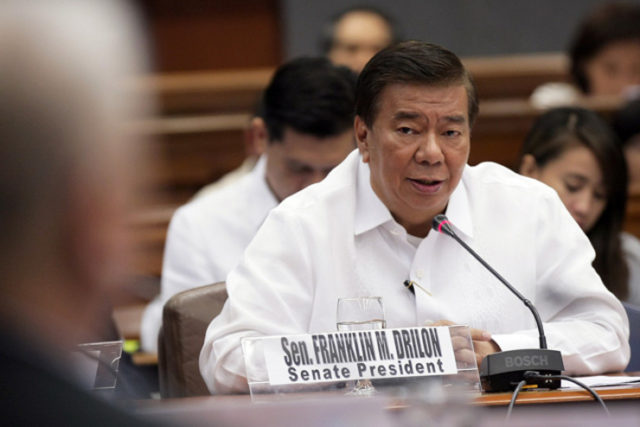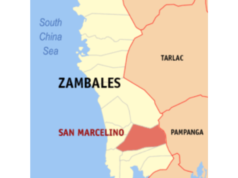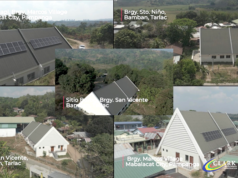(Photo grabbed from Rappler)
CLARK FREEPORT – Will investors here be among the 1,200 foreign investors ready to fl y abroad should Package 2 of the Tax Reform for Acceleration and Inclusion (Train 2) be fully enforced by next year?
Clark being a major economic zone in the country, the answer is: probably.
During his interpellation of the budget of the Department of Trade and Industry last Wednesday, Senate Minority Leader Franklin Drilon warned that at least 1,200 companies were poised to leave while a “good number” of investors were having second thoughts because of the government’s plan to remove tax perks under a second package of Train 2.
“At least 1,200 enterprises might leave the country due to a sudden shift in the policy, which would cut the incentives given to foreign investors,” he said.
Drilon also warned that about 150,000 jobs generated through the grant of incentives, such as income tax holidays, by the country’s top investment promotion agencies, namely the Board of Investments and the Philippine Economic Zone Authority, will be lost because of Package 2.
“All of these will be in jeopardy once the Train 2 is passed. I see a very dark future insofar as the foreign direct investments (FDIs) are concerned. We will not be surprised if next year, we will still be kulelat (bottom- dweller) again because of the lack of correct policy,” he stressed.
In an interview with Punto during a recent forum here, Trade and Industry Sec. Carlos Dominguez insisted that firms in economic zones have been enjoying tax privileges too long and that otherwise, the government would have earned some P30 billion from them had they been subjected to the usual corporate taxes.
An official of the Clark International Airport Corp. (CIAC) who asked not to be named said, however, that firms at economic zones would not have come to the Philippines in the first place were it not for the tax incentives. He noted that such firms have already created thousands of jobs which could vanish should they move to other countries because of Train 2.
Drilon noted that “We have established that the principal tool for attracting FDIs to come to our shores is the incentives granted under the law,” said Drilon, a successful corporate lawyer before joining government.
“However, it is not consistent with the reduction of fiscal incentives granted by investment promoting agencies to registered foreign companies, which the government is proposing under Train 2. How do we reconcile these two conflicting policies?” he asked.
Drilon said the new policy being pushed by the government’s economic managers did not sit well with companies enjoying these incentives, which would make them think twice about expanding their businesses if the incentives were removed.
“The conclusion that we can draw from these debates is that there is no deliberate and clear path to attract more FDIs, because the only tool that we have is incentives. Now, this grant of incentives is being muddled by these debates on Train 2,” he added.
Drilon also noted the country’s poor export performance, as it lags behind its Southeast Asian neighbors. In 2017, Singapore’s export receipts reached $373 billion; Indonesia, $169 billion; Thailand, $237 billion; Malaysia, $218 billion; and Vietnam, $215 billion. The Philippines’ export revenues stood at $69 billion last year, he also said.
This, even as consumer group Laban Konsyumer Inc. said it filed last December 4 another motion before the Supreme Court against the Train Law.
“The continuing imposition and increases of the fuel excise taxes exacerbate the adverse effects to all consumers, more particularly to Filipinos from low-income and poor consumers, who hardly have the resources to pay the excise taxes as prescribed by the Train Law and more so will pay more excise taxes in 2019 and 2020, but whose resources do not increase to be able to pay the higher taxes in 2019 and 2020,” said Laban Konsyumer president Victorio Dimagiba.





